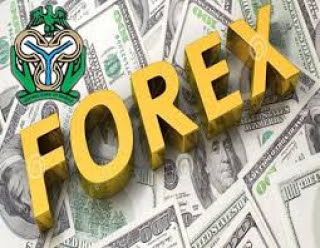Sustained efforts by the monetary authorities to stabilize the Naira exchange rates at the official and parallel markets appear to be yielding minimal results as the national currency continues its sliding trend over the past week on the back on the US dollar and other foreign currencies’’ scarcity.
Available data from the parallel market FX traders in the Federal Capital Territory (FCT) showed that the Naira plunged to a record low N983/$1 at the black market as of the late hours of Wednesday.
The local currency’s FX rate during the day’s trading reflected that it depreciated by 2.93% when compared with the N955/$1 that it traded on Tuesday amid increasingly worrisome volatility of the FX markets.
When contacted, one of the Bureau De Change (BDC) operators at the Wuse Zone 3 area of the FCT, who simply identified himself as Mohammed, told our correspondent that the parallel market trading had been in some form of a lull over the past week due to the scarcity of the US dollar due to recent FX policy stance of the apex bank.
He said: “What we are seeing here now due to dollar shortage in the market is due to CBN’s announcement. We are not seeing sellers as we used to before now and the CBN is not listening to the advice of the leaders of our association.
“This is not good at all for us and traders, who are patronizing us to meet their foreign exchange needs. As you can see now, we are very few here today because some of our members are not trading now”, the BDC operator added.
The Naira had traded the previous week at N950/$1 despite monetary policy measures by the Central Bank of Nigeria (CBN) to stabilize its value at the FX market
It would be recalled that at about August 16-18 this year, the Naira had depreciated to N955/$1, raising concerns among experts and investors that the local currency’s exchange rate might dip to N1000/$1.
However, towards the end of last month, it to N840/$1 following the apex bank’s warning to speculators about the huge losses they may incur with the implementation of its new policies.
But then, the Naira has continued to depreciate as inflow of FX remained low due to fiscal and other macroeconomic whirlwinds in the economy.






